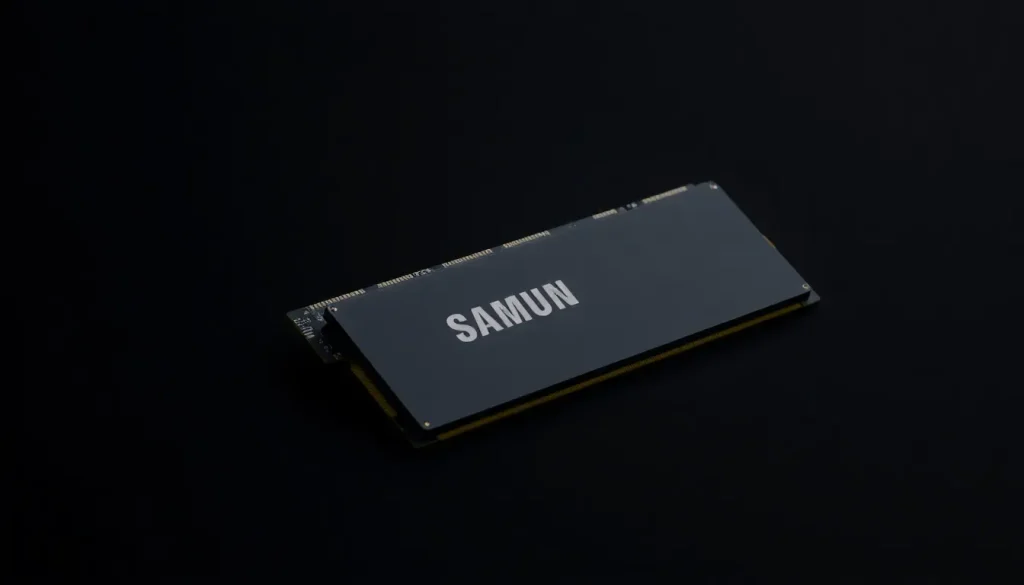Samsung and NVIDIA Partner for Next-Gen HBM4 AI Memory at 11 Gbps

In a rapidly evolving tech landscape, partnerships between industry giants often shape the future of technology. Recently, Samsung has forged a significant alliance with NVIDIA to supply next-generation HBM4 AI memory, a move that highlights the increasing demand for high-performance computing in artificial intelligence applications. This collaboration promises to redefine the capabilities of AI technologies and offers a glimpse into the future of memory solutions.
Samsung's groundbreaking HBM4 technology sets new standards in memory speed
Samsung has achieved a remarkable milestone with its innovative HBM4 technology, positioning itself as a frontrunner in the memory market. This development is crucial not only for Samsung but also for NVIDIA, as both companies aim to leverage cutting-edge technologies to enhance AI performance.
The collaboration between Samsung and NVIDIA centers around the HBM4 memory, which boasts impressive processing speeds. Samsung's HBM4 modules can reach 11 gigabits-per-second (Gbps), significantly surpassing the JEDEC standard of 8Gbps. This advancement is a testament to Samsung's commitment to innovation, as they utilize their 6th-generation 10-nanometer DRAM technology combined with a 4nm logic base die.
Despite intense competition in the market, Samsung's HBM4 has secured its place in NVIDIA's supply chain due to several key factors:
- High Speed: Processing speeds up to 11 Gbps, outpacing competitors.
- Energy Efficiency: Designed with energy conservation in mind, making it ideal for AI applications.
- Strategic Partnership: Collaboration with NVIDIA enhances market visibility and credibility.
This partnership is particularly timely as NVIDIA prepares to launch its Rubin AI lineup, which is anticipated to significantly impact the AI landscape. The demand for cutting-edge memory solutions, like HBM4, is critical for NVIDIA to maintain its competitive edge, especially against rivals such as AMD.
Implications of the Samsung-NVIDIA deal for the AI sector
The Samsung-NVIDIA collaboration is poised to have far-reaching implications for the AI industry. By integrating HBM4 memory into their systems, NVIDIA can enhance the performance of its AI applications, leading to more sophisticated and efficient computing solutions.
Some potential benefits of this partnership include:
- Acceleration of AI Development: Enhanced memory solutions will enable faster data processing and analysis.
- Improved Energy Efficiency: Optimized designs can lead to lower operational costs for AI systems.
- Innovation in AI Technologies: The collaboration may spur new applications and capabilities that were previously unattainable.
As the AI market continues to grow, the demand for high-performance memory will only increase. This deal not only strengthens Samsung's position as a leading memory manufacturer but also underscores the importance of strategic partnerships in driving technological advancements.
How does Samsung's HBM4 compare to other memory solutions?
Samsung's HBM4 technology is not just an incremental improvement; it represents a significant leap forward in memory performance. When compared to other available solutions from competitors like Micron and SK Hynix, Samsung's HBM4 stands out for a variety of reasons:
| Feature | Samsung HBM4 | Micron HBM3 | SK Hynix HBM3 |
|---|---|---|---|
| Processing Speed | 11 Gbps | 6-8 Gbps | 8 Gbps |
| Energy Efficiency | High | Moderate | Moderate |
| Technology Node | 10nm DRAM + 4nm Logic | Unknown | Unknown |
These comparisons highlight Samsung's lead in terms of both speed and efficiency. As the demand for high-performance memory solutions increases, it is likely that other manufacturers will have to innovate quickly to keep up.
Does Samsung supply NVIDIA with lower-tier AI chips?
The collaboration between Samsung and NVIDIA extends beyond high-end HBM4 memory solutions. Reports suggest that Samsung has also gained access to supply lower-tier AI chips for NVIDIA's expansive product line. This development could be a game-changer for both companies, allowing for a more diversified range of products.
Lower-tier AI chips have become increasingly important as more industries adopt AI technologies. By providing a comprehensive solution that includes both high-performance and lower-tier options, Samsung can help NVIDIA cater to a broader audience, including small to mid-sized businesses looking to adopt AI without the associated high costs.
Some reasons why this supply agreement is significant are:
- Diverse Product Offering: Samsung can help NVIDIA meet varying customer needs.
- Market Expansion: Enables NVIDIA to penetrate new markets with cost-effective solutions.
- Competitive Advantage: Strengthens both companies' positions in the competitive AI landscape.
This dual supply strategy could lead to a more robust market presence for both Samsung and NVIDIA, ensuring they are well-equipped to tackle future challenges in the rapidly evolving AI sector.
For more insights into the evolving tech landscape, check out this interesting video that discusses the implications of these advancements:
As the tech industry continues to shift rapidly, the collaboration between Samsung and NVIDIA serves as a reminder of how strategic alliances can lead to groundbreaking advancements, particularly in the field of artificial intelligence.




Leave a Reply